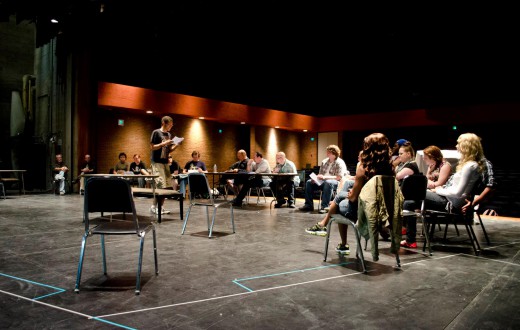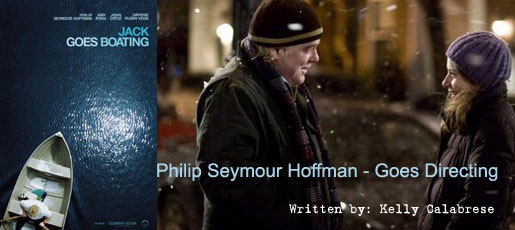As actors, we’re taught to hustle. We’re essentially freelancers or independent contractors, and as such we don’t have the luxury of kicking back in a cubicle, phoning it in and waiting for the next bimonthly paycheck. We always have to be on the lookout for the next job.
But what about those times when you suddenly find yourself overwhelmed with offers? What do you do when you come to the realization that you will be forced to turn down work?
TURN DOWN WORK?!? The horror! Saying no to a job is anathema to the born hustler, especially to actors. We are rightly taught that any opportunity to act is a chance to stretch our acting muscles and learn something about our craft. Every opportunity to do what we love is a good opportunity; that’s the philosophy, and it isn’t without its merits.
But if you’re doing your networking right, and you’re in the habit of connecting with the casting community through sites like NYCastings on a daily basis, you will at some point encounter the curious feeling of having more offers than you have time.
It’s painful, this embarrassment of riches, but here are a few questions that can help you decide what will be best for you, both as an actor and as a person.
1. What will you learn from it?
In acting, we are lucky in that our chosen profession is one that can span a lifetime, almost literally from cradle to grave. And in the course of that lifetime, we have endless opportunities to learn and to improve our craft. So when you’re faced with a choice between two or more projects that appeal to you, one part of the decision tree has to be from the point of view of the brutally selfish: how will this help me improve as an actor? It doesn’t matter if it’s a student project, a buddy’s comedy sketch, or a role in a studio film, you should always honestly assess the ways you might get to stretch yourself in the role. Even the most humble student films can feature great writing, interesting and atypical characters, and other new challenges for an actor. And when it comes to studio films, money isn’t everything…
2. Show me the money
…but it is a thing. Of course money is always a factor. But keep in mind that it is only one of many factors you should be considering. As Pulitzer and Tony-winning playwright and actor Tracey Letts said in an interview with thedailyactor.com, “I think some of it is just a mindset, too, where you sit there and you say, ‘It’s not worth it. It’s not worth the agonizing, it’s not worth sleepless nights, it’s not worth doing work that I’m not proud of.’ Ultimately, economic considerations be damned if it’s really not worth it.”
3. Who will you get to work with?
This is another thought that may come across as somewhat selfish, but: you’re being asked to commit some portion of your life to this project. And as we’ve already discussed, an actor’s time is always, always under the gun. You’ve got classes, auditions, hopefully you’re writing and filming your own projects–you can’t give away your time lightly. So who is the director, who else is in the cast, who wrote the project–these are all legitimate questions to examine before you say yes. Depending on the answers, you could find yourself forming new and valuable bonds of friendship and network connections–or you could find yourself committed to weeks or months of slogging through misery working with unprofessional, negative people. It’s worth asking.
3. How does the project fit in with your career goals?
While the temptation is to pick up the phone every time it rings with an offer and scream YEEESSSS!!! at the top of your lungs, it’s worth taking a moment to look at how a proposed project might fit–or not fit–with the career path you envision for yourself. Is the project one that will provide you a leg up toward the place you intend to be in the future? Or is it a project that feels like a retread of terrain you’ve already covered? We always want to be challenging ourselves as actors, and it’s important to our growth to push against the boundaries of our skill set as much as possible. An example of this is the actor who has lots of experience on stage, but who is lately looking to expand into film roles. When he or she gets a call from a director they’ve worked with before, floating the idea of playing a plum role in a stage production, the temptation is of course to grab it. And sometimes that might be the right answer for some people. But it might be worth it to ask if that role, juicy as it is, will simply be an additional notch in the already well-notched stage actor’s belt, when what he or she really needs is some new challenge–and more experience–in film.
4. Listen to John Turturro
As his character Bernie said in Miller’s Crossing, “Look in your heeeaaarrrt!” Okay, you can leave out the weeping and sobbing–and the gruesome end he came to as well. But truthfully the final arbiter in your decision-making should be that little voice inside that tells you if something is the right choice or not. We often know more than we think we know, and that voice is something you ignore at your peril. Instinct is vital to the actor’s journey on stage and in front of the camera, and thus it should also be one part of the calculus we use to determine what projects to accept. That’s not to say it should take precedence over logic, just that when you feel off about something or someone–as when you feel really good about something or someone–there is often a reason why, even if it isn’t immediately apparent. Consider also that when you feel really good about some upcoming project, or when you feel apprehensive about it, you carry that energy in to the project with you. In other words, our “premonitions,” for lack of a more concrete word, can turn out to be self-fulfilling prophecies, in a sense.
Bottom line: once you’ve taken the time to honestly assess yourself and the array of projects you have to choose from, and you’ve made your decision on which one to pursue, go forward with 100 percent commitment to it, and all the energy and love you’ve got, and you’re sure to get the most from it possible!







